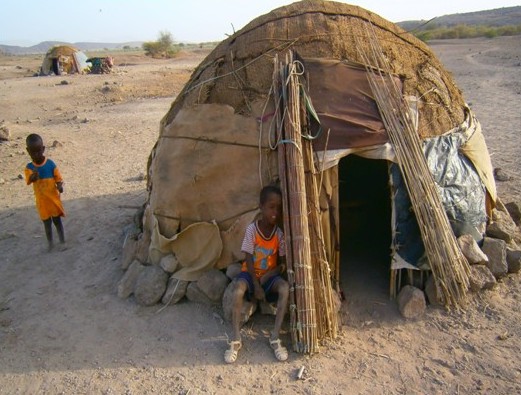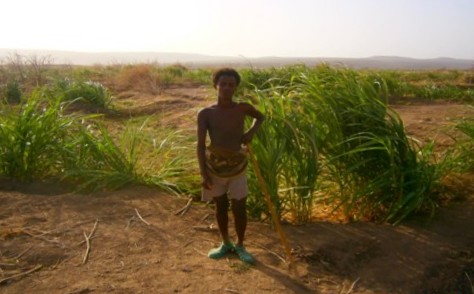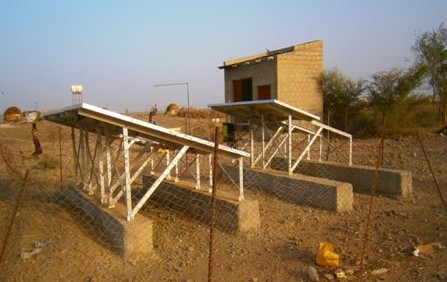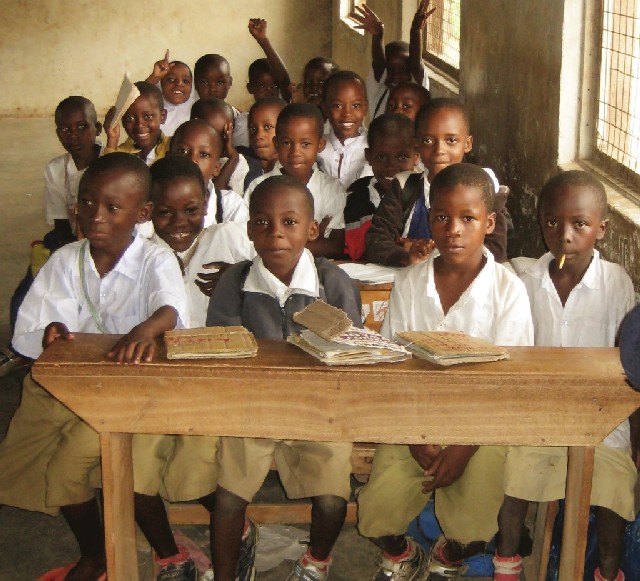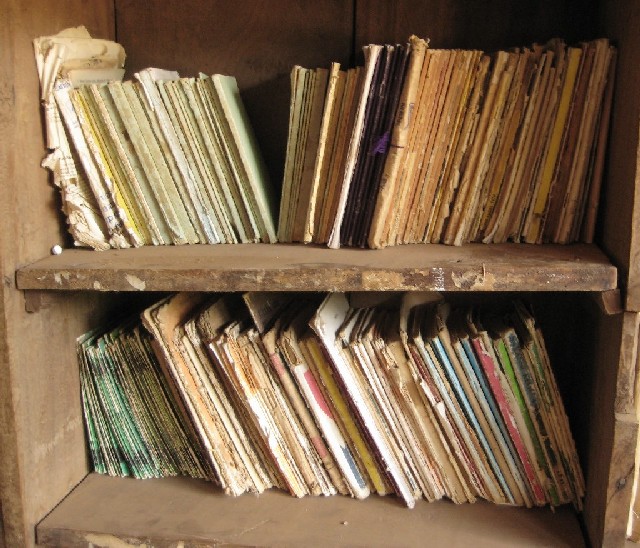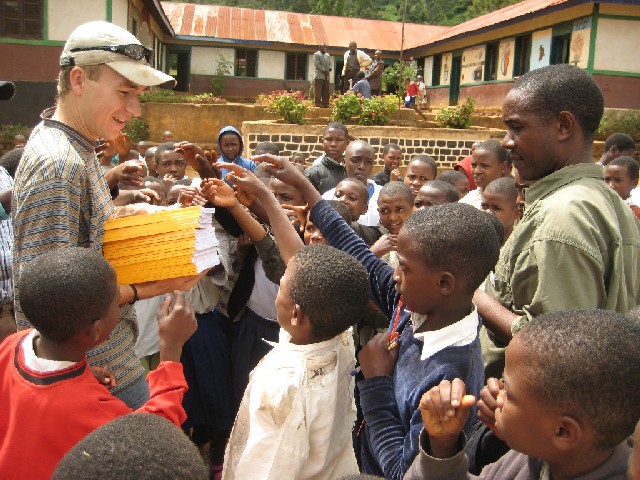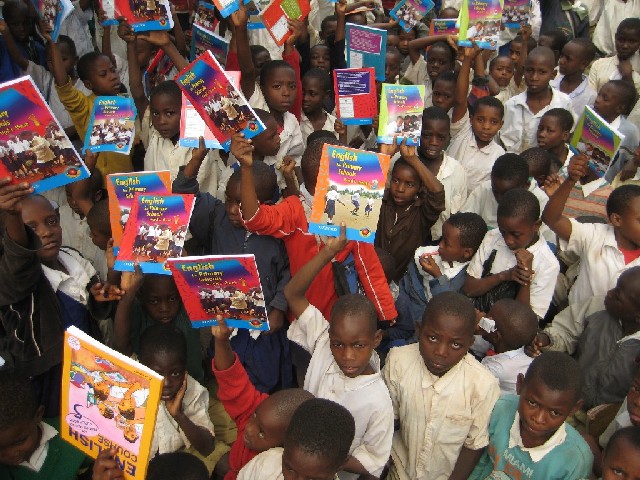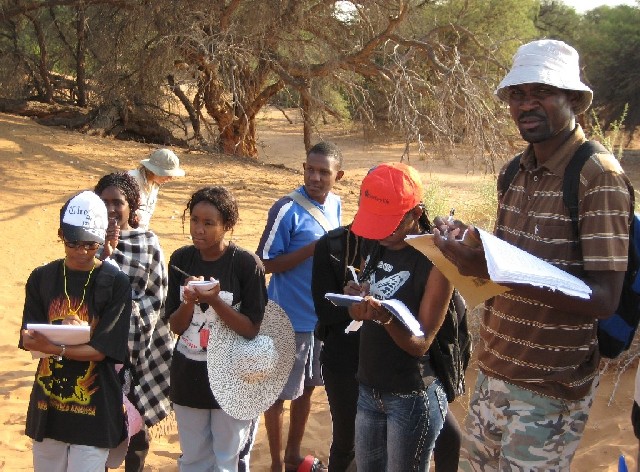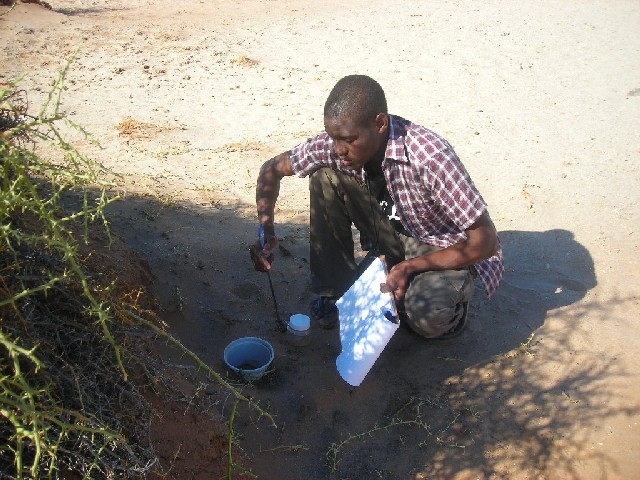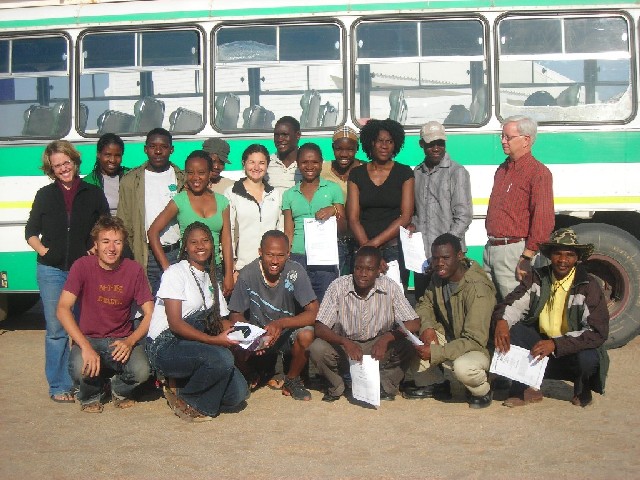Outreach projects
Here are some ideas how technical knowledge and environmental awareness can be shared and how we can reach out to people in areas, where sustainable water management is an even more sensitive and severe issue.
During my studies, I travelled several times to Southern Africa to work on water related problems. Besides, I had the chance to establish contacts with locals and to share knowledge and resources. In Namibia, we were helping students to write their MSc theses on desert ecology and in Tanzania we were fundraising money to supply primary schools with teaching materials. The newest project with Engineers Without Borders runs in Ethiopia and aims to install wells to tap groundwater for irrigation.
Groundwater tapping for growing pasture grasses
Background: In Ethiopia, water is a critical issue both in terms of availability and quality. Due to lack of save water sources for drinking and agricultural use, many people are suffering from water born diseases and are unable to grow crops to feed their families. The Afar region in Northern Ethiopia is considered semi-desert area and the majority of the rural communities are pastoralist or nomadic, and thus depend on rain-fed agriculture. They are moving from place to place searching of pastures and water for their livestock. The major sources of water are rivers, ponds, stagnant water during the rainy season, springs and hand-dug wells. The quantity and distribution of existing surface and groundwater supply schemes are insufficient. According to UNICEF, more than 30% of the schemes are not functioning due to technical and management reasons.
Perspectives: Several studies conducted by NGOs showed that the area is rich in underground water. Few projects intended to exploit underground water resources, but the results were unsatisfactory, due to lack of maintenance and technical staff. Nevertheless, the communities show strong interest in accessing groundwater to grow pasture grasses in order to prevent erosion and to stabilize watershed structures.
Objectives: We intend to realize these ideas and to tap underground water for irrigation of pasture grasses and vegetables for the community in Arsis Keble located in the Mile Woreda Afar Regional state. We consider irrigation systems that store and use rain water but also produce fresh water from groundwater wells. Such wells need to be run off-grid and alternative solutions for electricity production need to be found. This upcoming project is run by a local group of Engineers Without Borders and will start in the coming months with an intended implementation in summer 2013.
School materials for primary schools in Tanzania
Background: The little town Makanya and the surrounding villages in the Pare Mountains are among the poorest in Tanzania and the people live from rudimentary agriculture. Only a small number of people with english skills can benefit from the rising tourism industry in Tanzania. Unfortunately, there is no functional education system that is accessible for the people where people could practice their english. The teachers are little educated, the school infrastructure is at a minimum and good teaching materials are not existent.
Implementation: We initiated a project called Vitabu that fundraised money to provide teaching materials for english classes at primary school level. We collected money only from private sources and bought the books from a local supplier in the region capital. We visited a number of schools in the area to investigate their need for books and made a scheme how to distribute the books.
Outcome: The first attempt to run this type of project turned out to be successful. We collected more than 2300 Euro within a month time yielding about 1200 school books for both students and teachers. Six schools benefitted from the project and received teaching materials. The project was well received from both, the schools and the local people. We are trying to proceed with the project in a second phase to provide teaching materials for even more remote schools in the Makanya area.
Training with Namibian MSc students
Idea: In Namibia there is basically one polytechnical school in Windhoek and the students in environmental and ecological sciences carry out their MSc projects regularly at Gobabeb. The staff at the universities is often not educated in teaching and the overall level of expertise is far below European standards. We considered knowledge exchange and research support a valuable contribution for the future career of these students and took the initiative to run several courses and MSc projects in desert ecology and appropriate technologies (solar power, water recycling, etc) at Gobabeb.
Implementation: As research assistants at Gobabeb, we conducted field trips to the various ecosystems in the Namib desert and assigned the students little research projects, which they carried out under our supervision. This included field work, lab analysis and drafting of written reports. The training was done in short courses or in one-year research stays at Gobabeb.
Outcome:The students mostly appreciated the support and did nice work on their projects. In Namibia, ecology and environment are a controversial topic, as it is in permanent conflict with the Uranium mining industry,. On the other side, the unique nature is an attraction for tourism. We are glad that we could contribute to the environmental awareness of some of the students, who are now in charge to secure and preserve the sensitive desert ecology of Namibia.

